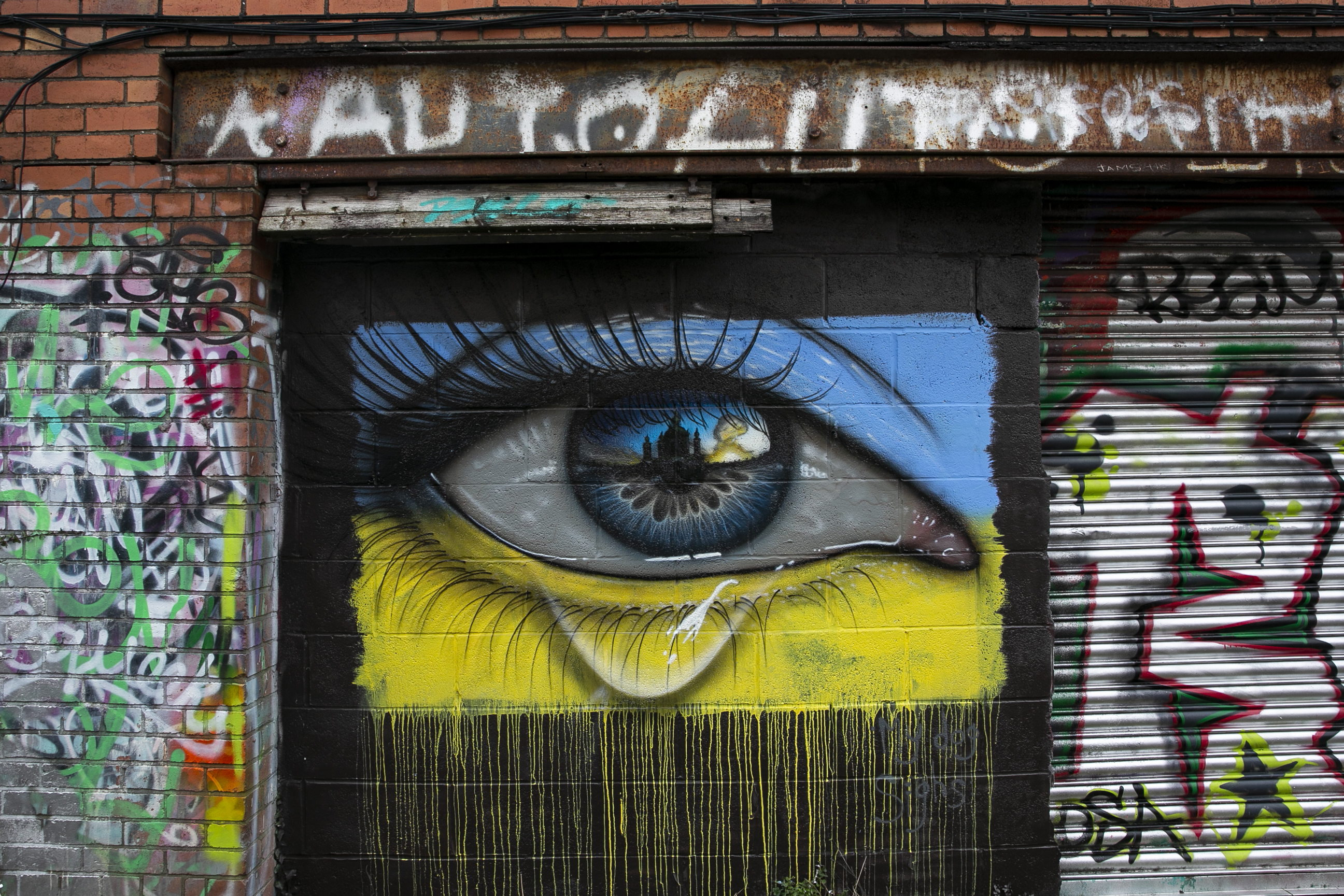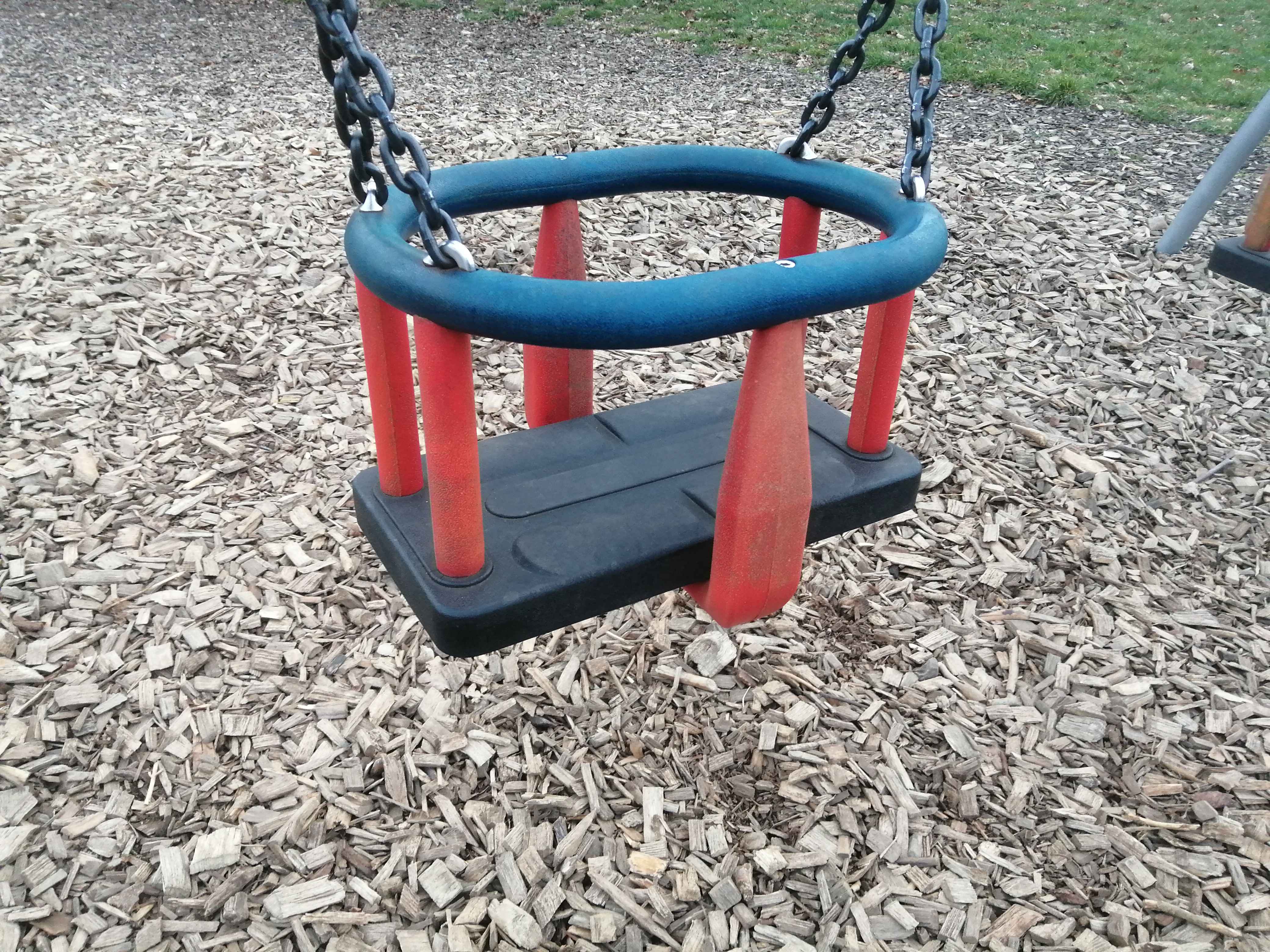
Anti-War Activism & Solidarity Ramp Up As Russian Invasion of Ukraine Intensifies
Solidarity with Ukraine and anti-war actions will take place in Wales this weekend as the Russian invasion of the Eastern European country enters a new phase.
By SC Cook
Russian military forces have now taken control of the key port city of Kherson in southern Ukraine, after heavy fighting following the invasion last week.
According to Ukraine’s State Emergency Service, more than 2,000 Ukrainian civilians have been killed so far since Russian troops entered the country, and the UN refugee agency has said that one million people have now fled Ukraine in the wake of the crisis.
Cover image: Solidarity with Ukraine street art, Cardiff. By Tom Davies
Solidarity
This coming Sunday, March 6th, a global day of protests against the war has been backed by a coalition of groups including the Campaign for Nuclear Disarmament, the Stop the War Coalition, CODEPINK, the Democratic Socialists of America (DSA) and No to War, No to NATO.
Critically, the anti-war movement is mobilising in Russia itself. On Wednesday, activists in the country launched a new initiative against Putin’s war drive. In a statement, they said:
“The Russian government betrayed its promises of peace and stability, leading the country into war and economic catastrophe…Already today, tens of millions of people all over the country have expressed their horror and disgust at the actions of the Putin administration.”
There have been calls for widespread anti-war protests in the country over the coming days.
In Wales, the demonstrations against the war will take place at 2pm in Cardiff and 12 noon in Swansea on Sunday.
Both events are demanding Russian troops out of Ukraine, sanctuary for refugees and no further expansion of the US led military alliance NATO in Eastern Europe.
Meanwhile, at a separate event on Sunday in Cardiff called “Hold The Light, ” people will raise money for life saving equipment.
The Facebook page for the fundraising event, which will take place in The Moon from 3pm and is being organised by a group of Eastern Europeans in Wales, says it is to “collect funds for life-saving equipment for our brothers and sisters who within a few days from musicians, artists, builders, athletes, managers, teachers became soldiers due to Russian invasion on Ukraine.”
On the same day, in the evening, a third event in the capital is being organised, this time by the Interfaith Council for Wales at the Senedd, billed as a vigil for Ukraine. Cannon Aled Edwards, the groups secretary, told BBC Wales that the “major” vigil would be a chance for people to come together, reflect and support each other.
Edwards called on people to think of the Ukrainian community in Wales but also “be particularly mindful of people in Wales from Belarus and Russia who have not made this choice yet have a right to live safely.”
Since the invasion there has been an outpouring of support for people under siege in Ukraine. This has mainly come in the form of donations organised largely by the Eastern European community in Wales.
In Newport, the Polish community has set up what is probably the largest operation of its kind in Wales, taking over the Westgate Hotel in the city centre to process thousands of donations for Ukrainian refugees.
One of those involved, Kamil, told voice.wales that over 100 people volunteered on Wednesday, some until 10pm, to pack boxes of clothes, nappies, sanitary products and food donated from across the whole of south Wales. Today, they asked for people to stop making donations so they can deal with the huge influx of supplies.
Crackdown
Opposition to the war internationally has been boosted by reports of Russian troops refusing to fight on the front line in the face of resistance by ordinary Ukrainians. Drone footage showed hundreds of people blocking the main road leading to the largest nuclear power plant in Europe, fearing another Chernobyl as the Russian army advanced. People had built makeshift barricades to stop military access to the town of Enerhodar, just south of the huge Zaporizhzhia nuclear power plant.
Yesterday, Russia said that almost 500 of its troops had been killed in the war so far, a devastating figure that will fuel anti-war sentiment in the country.
Images of dead Russian soldiers, or ordinary Ukrainians fighting the war, have been circulating on the web in Russia, prompting the government to close down certain media sites.
The crackdown shows how nervous Putin is about the prospect of internal opposition to the war.Videos also emerged of a survivor of the Siege of Leningrad, which lasted 2 years and 4 months, claiming the lives of more than 1 million Russians, being arrested by Russian police as she protested against the war. Other images show huge crowds gathered in St Petersburg in anti-war protests.
It is against this backdrop that an anti-war coalition was launched in the country on Wednesday, under the name of the “Manifesto of the Socialists Against the War Coalition”
In the statement, the group said:
“No threat to the Russian state exists that would warrant sending our soldiers to kill and die. They are not “liberating” anyone. They are not helping any popular movement. They are nothing but a regular army tearing down peaceful Ukrainian towns at the behest of a handful of billionaires who dream of keeping their grip on Russia forever.”
They also hit back at accusations from the Russian establishment that anti-war activists in Russia are pro-West. “We are told that the opponents of this war are hypocrites — that they stand not against the war, but for the West. This is a lie. We have never been supporters of the United States and its imperialist policies.”
Britain
Meanwhile in Britain, anti-war activists have faced a mirror accusation – that they are ‘pro-Russia’ and have been under pressure not to be critical of their government and its allies when expressing opposition to the Russian invasion of Ukraine.
Last week the prominent Tory MP Tom Tugendhat, even called for the treason act to be updated to prosecute those “who seek to undermine the security and safety of the British people.”
The British establishment, primarily through the leadership of the Labour Party, have tried to ensure that Western military and economic power are seen as the only method by which Russian troop withdrawal can be secured. This has gone hand in hand with calls for NATO to impose a No-Fly zone over Ukraine, dragging the West into a direct conflict with another nuclear power..
Those arguing against such a strategy, or taking a view against pro-Western opinion, have also found themselves shut down by mainstream commentators.
A caller to the Jeremy Vine show on Wednesday, who said that “the people of Russia are not our enemies” and resisted calls for escalation, was told by the host that Russian troops “probably deserve to die.” In response, the caller asked “do kids deserve to die?” – in reference to teenage soldiers thrown onto the frontline.
Meanwhile, Labour members now face expulsion if they associate themselves with the Stop the War Coalition, a group who criticise the role of NATO in the Ukraine crisis as well as calling for Russian troop withdrawal.
John McDonnell, the Labour shadow chancellor under Jeremy Corbyn, yesterday pulled out of a Stop the War Coalition event after it was reported he would have the whip withdrawn if he did so.
The crackdown by Starmer, who has said that critics of NATO have no place in the party, has prompted some long standing socialist members to leave the party in disgust. NATO was the key architect of the devastating occupation of Afghanistan and has long been criticised for inflaming military tensions through its expansionist policy in Eastern Europe.
The Stop the War rally went ahead last night in spite of McDonnell’s cancellation in front of a large crowd in Conway Hall, London, with speakers including Tariq Ali, Kevin Courtney from the National Education Union and Mark Serwotka, general secretary of the Public Commercial and Services union.
Tariq Ali, a veteran of the anti Vietnam war movement in the 1970s, told those gathered in Conway Hall that Western leaders wanted to shut down any meaningful understanding of the crisis. “Why is it that both Boris Johnson and Keir Starmer have attacked Stop the War?,” he asked. “We try to explain things and they don’t like that. They live for the moment, create propaganda and anyone who challenges that is regarded as a traitor”


